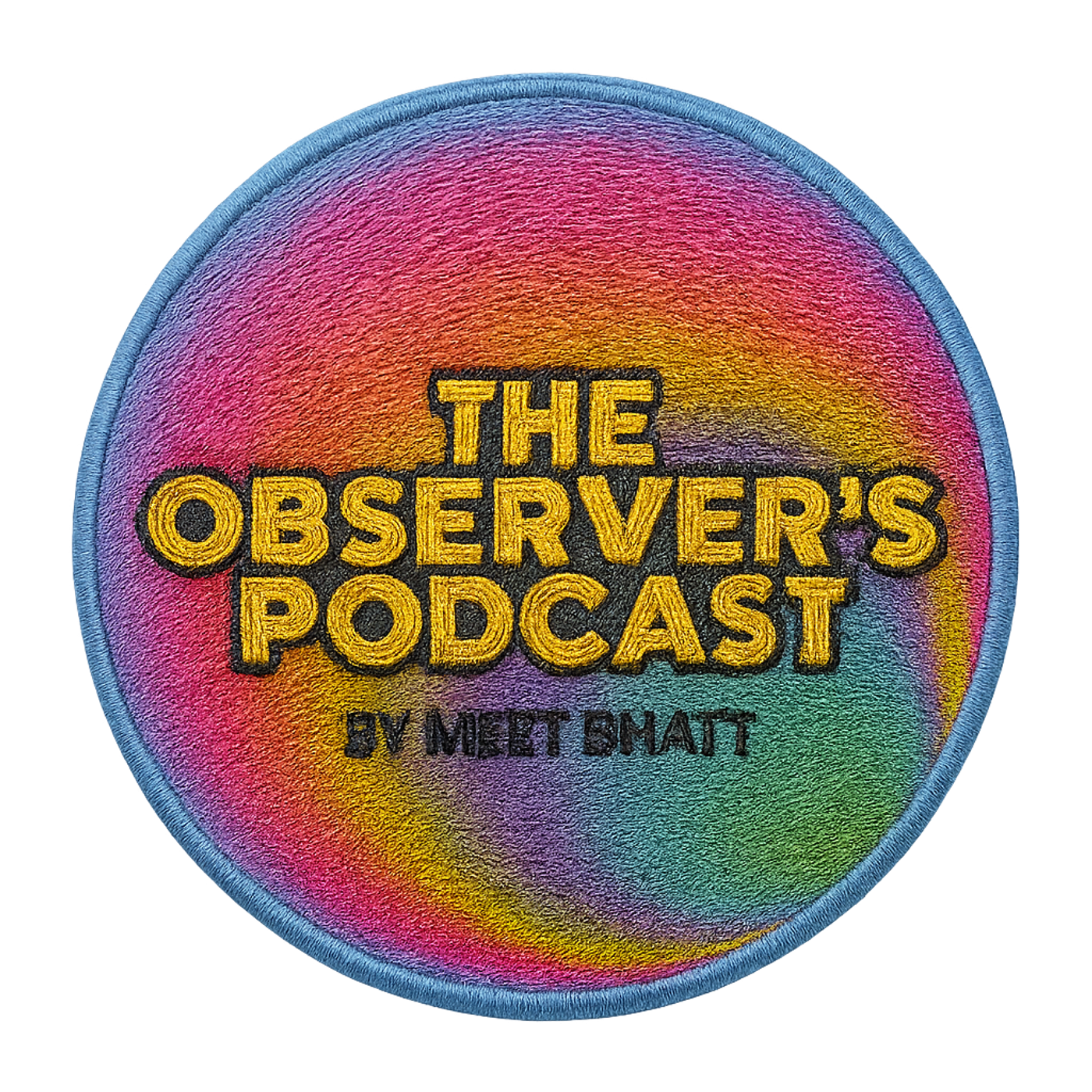The Observer's Podcast

The Observer's Podcast
Podcast Description
A podcast where we talk about Philosophy, Geopolitics, Geo-strategy, Military science and brand building. Learn how these subject that sound so different interconnect to form the truth of the matter. Interesting conversation with brilliant minds. Subscribe for more and follow on Instagram for guest announcements. NOW GO PODCAST!!
Podcast Insights
Content Themes
The podcast delves into intricate topics such as the nature of power dynamics, ethical implications of military strategies, and the role of personal branding in international affairs, featuring episodes that discuss the geopolitical significance of emerging markets and philosophical perspectives on human behavior.

A podcast where we talk about Philosophy, Geopolitics, Geo-strategy, Military science and brand building. Learn how these subject that sound so different interconnect to form the truth of the matter. Interesting conversation with brilliant minds. Subscribe for more and follow on Instagram for guest announcements. NOW GO PODCAST!!
In this podcast episode, Meet Bhatt and Mehta Mandar delve into the complexities of geopolitics, focusing on the emerging China-Russia alliance, the historical context of nuclear warfare, and the implications of intelligence operations in international relations. They discuss the moral dilemmas faced by nations, the concept of ‘red lines’ in diplomacy, and the shifting dynamics of global power, emphasizing the importance of understanding these factors in today’s geopolitical landscape. This conversation delves into the historical context of the Soviet Union’s actions during World War II, the subsequent Cold War dynamics, and the formation of NATO. It explores the complexities of the Ukraine conflict, the role of President Zelensky, and the impact of international sanctions on Russia’s economy. The discussion highlights the geopolitical strategies at play and the implications for global relations. In this conversation, Mehta Mandar and Meet Bhatt delve into the intricate dynamics of geopolitics, focusing on the relationships between India, Russia, and China. They explore the implications of the Dragon-Bear bond, the economic challenges facing Russia, and the role of BRICS in global alliances. The discussion emphasizes the importance of historical context in understanding current geopolitical conflicts and the evolution of warfare from human combat to machine-driven conflicts. The conversation concludes with reflections on the necessity of diplomacy in resolving international tensions and the potential future of global conflicts. Takeaways: -Geopolitics is driven by national interests, not friendships. -There are no morals in geopolitics; countries act in their own interest. -Historical context is crucial for understanding geopolitical conflicts. -The concept of ‘red lines’ defines the limits of international aggression. -The China-Russia alliance is based on temporary mutual interests. -The morality of nuclear warfare is complex and often debated. -Intelligence operations play a significant role in national security. -Israel’s response to terrorism showcases effective military strategy. -India’s approach to terrorism has been criticized for being too lenient. -Global power dynamics are shifting, with emerging powers challenging traditional superpowers. -The German invasion of the Soviet Union was a pivotal moment in WWII. -Hitler’s betrayal of the Soviets was a critical mistake. -The Cold War led to the formation of NATO as a counter to Soviet power. -NATO’s expansion has been perceived as a threat by Russia. -The Ukraine conflict is deeply rooted in historical ties and geopolitical strategies. -Zelensky’s leadership is challenged by the realities of war and international pressure. -Sanctions on Russia have significant economic implications. -China’s role as a buyer of Russian goods is crucial for Russia’s economy. -India’s growth is viewed with skepticism by some global powers. -Geopolitics is driven by national interests rather than personal relationships. -India’s importance to Russia is strategic, not personal. -China’s aggressive tactics make it a significant threat. -Russia’s economy is struggling due to various factors, including the Ukraine war. -BRICS serves as an economic alliance but lacks military cohesion. -Understanding historical context is crucial for grasping geopolitical conflicts. -Modern warfare increasingly relies on machines rather than human soldiers. -Diplomacy is essential to prevent conflicts and promote peace. -The evolution of warfare has created a distance between combatants and victims. -The potential for future conflicts remains high, with technology playing a key role. -The existence of extraterrestrial life is plausible, but contact may be unlikely.

Disclaimer
This podcast’s information is provided for general reference and was obtained from publicly accessible sources. The Podcast Collaborative neither produces nor verifies the content, accuracy, or suitability of this podcast. Views and opinions belong solely to the podcast creators and guests.
For a complete disclaimer, please see our Full Disclaimer on the archive page. The Podcast Collaborative bears no responsibility for the podcast’s themes, language, or overall content. Listener discretion is advised. Read our Terms of Use and Privacy Policy for more details.